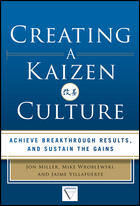Leveling the Playing Field
SB206 and Quality 4.0

It’s titled Senate Bill (SB) 206. Recently passed by the unanimous vote of state legislators in California, the measure would allow student athletes to hire agents and make money from their name, image, and likeness. In short, these athletes could sign endorsement deals, appear in video games, and sell their autograph. However, the bill does not authorize students to be paid directly for their efforts on the field or courts and endorsement deals cannot conflict with those of the universities they attend and compete for.
However, even with these concessions, the bill has already caused conflict, particularly with the governing body of college athletics, the National Collegiate Athletic Association (NCAA).
Those in favor have most likely already cried “Finally!” at the prospect of the bill becoming law. The debate as to whether college athletes should be compensated is not a new one and the pro side has always argued that the billions of dollars generated by college sports has always been reaped by the universities alone and never shared in by the athletes, other than scholarships.
NBA star LeBron James and others expressed support for SB206, yet many see the benefit of scholarships—many times resulting in an entirely free college education—as more than enough compensation for college athletes, but the restrictions on many of these athletes is a bit more insidious. Consider that, according to an LA Times article on the passing of the bill, lawmakers provided examples of how college athletes were barred from giving lessons, putting on summer camps, or promoting their autobiographies by the NCAA and university rules.
In the same article, Assemblyman Kevin Kiley said, “Forget shoe deals and video games, NCAA athletes can’t make a little money over the summer coaching youth sports, can’t promote their social media, can’t model athletic wear, can’t accept groceries or help with rent or equipment. When a line in the sand is enforced obsessively, excessively and to the point of absurdity, that’s usually a sign it doesn’t belong there.”
Some point to the NCAA and universities’ opposition to the bill as simply protecting their control over the athletes and the revenues that college sports produce. Some point to LeBron James’ support of the bill on wanting to protect the money-making options of his son, LeBron James Jr., a 14-year-old basketball prodigy who is already garnering attention for his prowess on the basketball court.
Regardless of intent, the debate, and SB206’s place in it, is about fairness. In many ways SB206 is reminiscent of Major League Baseballs’ revenue sharing—or luxury tax—and the salary cap used by other major sports leagues, all of which attempt to level the playing field (pardon the pun) and avoid the dreaded “gap.” And probably the most important part of a level playing field, particularly from a business perspective, is investment and reinvestment in the business or product, whether it is the development of the next iPhone or the next LeBron James.
In the quality industry, that important reinvestment is in closing the gap between Industry 4.0 and Quality 4.0. So we invite you—and LeBron James, Jr. —to check out “New Software Technology Advances the Practicality of Quality 4.0” and everything else we have to offer in this month’s Quality.
Enjoy and thanks for reading!
Looking for a reprint of this article?
From high-res PDFs to custom plaques, order your copy today!








